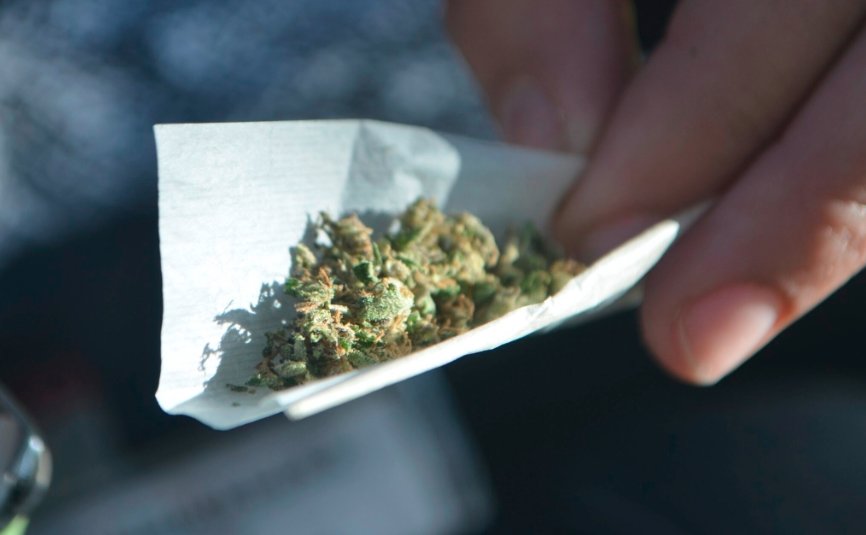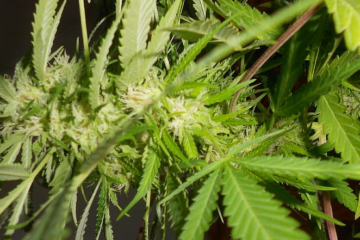Marijuana is legal in many states, but not in public housing
Marijuana, medical marijuana or both are currently legal in D.C., New Jersey and 37 other states, and over 90% of Americans support legalized medical marijuana. However, under current federal law, users of drugs that are illegal under federal law, including marijuana, are prohibited from being admitted into federally assisted housing, such as public housing and Section 8 housing. Federal law also allows landlords to evict residents of federally assisted housing for illegal drug use.
This means that millions of Americans who live in federally assisted housing face the risk of losing their homes if they use marijuana for medical or recreational purposes, even if it is legal in their state. This is especially unfair for low-income people, people of color, veterans, and people with disabilities, who are disproportionately affected by the federal ban on marijuana and the lack of affordable housing.
A new bill would allow marijuana use in compliance with state laws
To address this issue, Congresswoman Eleanor Holmes Norton (D-DC) and Senator Cory Booker (D-NJ) introduced the Marijuana in Federally Assisted Housing Parity Act on Thursday, January 25, 2024. This bill would permit the use of marijuana in federally assisted housing in compliance with the marijuana laws of the state where the property is located. It would also require the Department of Housing and Urban Development (HUD) to develop regulations that restrict smoking marijuana in federally assisted housing in the same manner and to the same locations as HUD restricts smoking tobacco in federally assisted housing.
The bill would protect the rights and choices of individuals living in federally funded housing, and ensure that they are not discriminated against or evicted for using marijuana or treating a medical condition in states where it is permitted. It would also respect the states’ rights to regulate marijuana as they see fit, and align the federal policy with the changing views and attitudes of Americans on marijuana.
The bill has support from advocates and lawmakers
The bill has received support from various advocates and lawmakers, who praised its efforts to end the unjust and harmful consequences of the federal prohibition on marijuana for people living in federally assisted housing.

“Individuals living in federally funded housing should not fear eviction simply for treating their medical conditions or for seeking a substance legal in their state,” Norton said. “Increasingly, Americans are changing their views on marijuana, and it is time that Congress caught up with its own constituents. With so many states improving their laws, this issue should have broad bipartisan appeal because it protects states’ rights.”
“This legislation challenges the discriminatory practices that still negatively impact tenants in federal housing programs, and ensures that personal choices made in accordance with state law are protected,” said Senator Booker. “No one should face eviction or be denied housing for legally using marijuana or treating a medical condition in states where it is permitted.”
The bill is also endorsed by several organizations, such as the Drug Policy Alliance, the National Organization for the Reform of Marijuana Laws (NORML), the National Cannabis Industry Association, the National Low Income Housing Coalition, and the ACLU.
The bill faces challenges and opposition
Despite the support and momentum for the bill, it still faces many challenges and opposition from some lawmakers and groups, who argue that marijuana is a dangerous and addictive substance that should remain illegal under federal law. They also claim that allowing marijuana use in federally assisted housing would pose health and safety risks for the residents and the communities.
The bill would need to pass both the House and the Senate, and be signed by the President, to become law. However, the prospects of the bill are uncertain, as the Congress is divided and gridlocked on many issues, including marijuana reform. The bill would also need to overcome the resistance and influence of the powerful anti-marijuana lobby, which has spent millions of dollars to oppose any changes to the federal marijuana policy.
The bill is part of a larger and ongoing effort to end the federal prohibition on marijuana and to address the social and racial injustices caused by the war on drugs. Other bills that have been introduced or proposed in the Congress include the Marijuana Opportunity Reinvestment and Expungement (MORE) Act, which would decriminalize and deschedule marijuana at the federal level, and the STATES Act, which would respect the states’ authority to regulate marijuana without federal interference.



